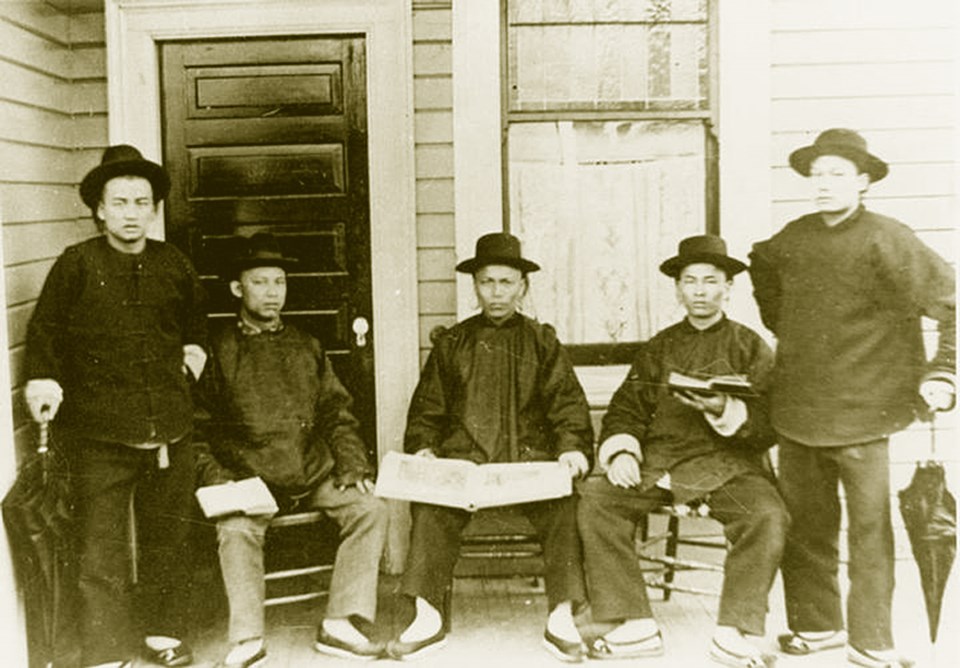A public forum to gather information on how to properly address an apology to the Chinese community is happening in Burnaby next Monday, but some advocates say it's still not enough to make up for the historic damage done.
On Jan. 20, Teresa Wat, B.C. minister of multiculturalism, will host a public forum at the Hilton Vancouver Metrotown. The forum is an effort to consult the public and raise awareness, which will result in the province delivering a formal apology to the Chinese community for past government mistakes that targeted those immigrants up to 50 years ago through racist legislation.
"The whole idea is to have public consultation. It's the first step to increase public awareness," Wat told the NOW. "Second of all, we want to listen to the general public in all of B.C., in particular the Chinese-Canadian community on what they think about how we should deliver our formal apology on behalf of the whole legislation, on behalf of all the people."
The public forum in Burnaby will be the fifth of seven public consultation events across B.C. The purpose of the forums is to also hear what kind of legacy projects the province can take on, Wat said.
"We all know that we have to learn from what is done in the past and we don't want to repeat those mistake again," she added. "The first two sessions, all agreed over a formal apology."
However, the third session held in Vancouver on Jan. 12 proved to be less agreeable than the previous events in Victoria and Kamloops.
Sid Chow Tan, founder of the Head Tax Families Society and its former president, said no apology is genuine unless a head tax refund is made to the surviving family members of Chinese immigrants who faced severe restrictions when they settled in B.C. years ago. He spoke at the event in Vancouver and plans to attend the forum in Burnaby next week.
"This is really important Canadian story the government is playing politics with," he told the NOW. "The language they're using is compensation. It's not compensation. It's a tax refund collected unjustly, sitting in the B.C. treasury for 100 years and I'm told it's worth $1.2 billion now."
Tan says a $9 million head-tax redress would bring action to what otherwise would just be words from an apology.
"What's an apology? My understanding is an apology is an acknowledgement of wrongdoing," he said. "It should be reductive to the giver, and giving to the receiver. It should have ample measure of restorative justice."
Tan said he and other members of his society are living descendents of parents who had to pay the head tax, and that the $9 million is symbolic.
"The thing was family separation, and will the seniors affected be the seniors who are going to get a voice in this?" he added.
But, minister Wat says no head-tax redress will be part of the formal apology because the federal government compensated head-tax families back in 2006.
"I want to bring your attention that this is a historical wrong," she said. "There were over 160 pieces of legislation in the 1800s and 1900s, specifically depriving the Chinese the right to vote, to hold certain professions ... depriving them the right to own property and even depriving them the right to study in a private school. It's more than just the head tax. ... It's just one of many pieces. It's an educational process."
But Bill Chu, chair and founder of Canadians for Reconciliation, disagrees with the minister. He says the apology process so far has not included reconciliation, which the City of New Westminster's process did.
In 2010, New West was the first Canadian municipality to make a formal apology for its historical discriminatory actions towards the Chinese community. In September 2009, Chu's letter asked the city to undertake a number of redemptive actions and the city launched a reconciliation process with the Chinese community.
"We are not particularly interested in the way things are progressing, meaning they (the province) are just herding the Chinese community into consultations," he told the NOW. "I think the basis of any apology should be understanding what happened. In this case, there's a huge ignorance out there and that's not simply people who prefer to be ignorant, but they are kept ignorant by the government."
Chu says he doesn't blame people who are angry over the apology because the province has not done enough to educate the public on what Chinese immigrants faced in the past. He said the school curriculum barely covers Chinese history in Canada, and the issues it does cover were only federal policies.
"In the case of New Westminster, after they got their staff to start researching into the treatment of the Chinese in New West, they disclosed 37 pages of just highlights of policies by the city," he said. "If a city can discover that much, guess how much the province will be able to unearth."
Chu questions if the ethnic vote scandal is the impetus for this apology process, and wants to see the current government do a better job of informing the public on what really happened to the Chinese community in past eras.
Chu said he will be speaking at the public forum in Richmond, as presenters are only allowed to speak at one event.
Burnaby Coun. Anne Kang said she would not be attending the meeting on Jan. 20, but said any apology made to a particular group should be sincere.
"It should be a respectful process where all are heard," she told the NOW. "It should be through a broad consultation process versus anything that's rushed."
She noted that the process should also educate the younger generation about the older generation's plight.
The Burnaby event is from 7 to 9 p.m. at the Hilton Vancouver Metrotown on Monday, Jan. 20. For more information, visit www.embracebc.ca.



